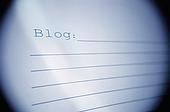The best advice on writing
 “If you want to write, why don’t you?”
“If you want to write, why don’t you?”“I don’t have the talent.”
“How do you know?”
“I just know. I mean, I’m not especially creative. I was never, well, one of the creative ones. You know.”
“I don’t know. Let me see something you’ve written.”
“Well, I don’t, uh, have anything..”
“Why don’t you sit down and write something right now.”
“What?”
“Anyhting. Try a news story about a meeting you’ve just attended. Or just get something off your mind, something you’ve been thinking about, something that irritates you, an event or a person or place you keep remembering.”
“But I don’t know where to start. I don’t know how you do it. Writing’s a mystery to me.”
But writing isn’t a mistery. It is a process, a logical series of language acts than anyonewhocan write-- and read what they have written—can perform.
The best advice on writing: “Write what makes you happy.” (O. Henry)


2 Comments:
The best advice on writing I ever received was from a journalism professor who told me to read William Zinnser's book, "On Writing Well."
Synaptic mogul, a reviewer on Amazon, wrote this excellent summary of the book:
1. Do - prune out every word that does not perform a necessary function. Strip each sentence to its cleanest components. A clear sentence is no accident.
2. Do - use the thesaurus liberally. Learn the small gradations between words that seem to be synonyms.
3. Do - try to improve the rhythm by reversing the order of a sentence, substituting a word that has freshness or oddity, and by varying the lengths of sentences.
4. Do - make your first sentence the best one - your lead must capture the reader.
5. Do - make each sentence lead into the next. Readers think linearly.
6. Do - Take special care with the last sentence in your paragraph - it is the springboard to the next paragraph.
7. Do - make your paragraphs short. Readers think in segments.
8. Do - pay special attention to the last sentence. The perfect ending should take your reader slightly by surprise and yet seem exactly right.
9. Do - Read it aloud to see how it sounds and re-edit - then do it again. Clear writing is the result of lots of tinkering.
On the other hand:
1. Don't - use passive verbs unless there is no comfortable way to use an active verb.
2. Don't - use adverbs that convey the same meaning as your strong active verb.
3. Don't - use adjectives when the concept is already in your carefully chosen noun.
4. Don't - use small words that qualify how you feel: "a bit," "a little," "sort of," and dozens more. Good writing is lean and confident.
5. Don't - use concept nouns:
Instead of - "The common reaction is incredulous laughter."
Write - "Most people just laugh with disbelief."
6. Don't - use the exclamation point unless you must, do use the period more frequently, don't forget the versatile dash, and cut down on the use of semi-colons and colons. If you don't know how to punctuate, get a grammar book.
Thank you both for comments!:-)I think the readers will find your advices very helpful:-)
Post a Comment
<< Home